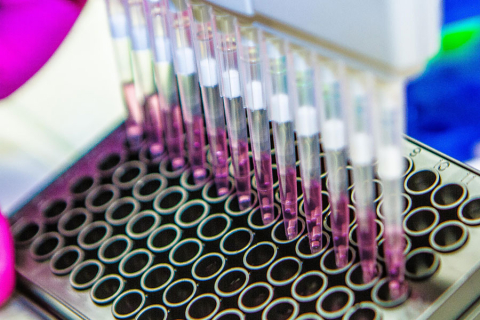The MINIATURA call supports research activities to prepare the assumptions for a research project that will be presented at other national or international calls. The call offers funding from PLN 5,000 to PLN 50,000 for a research task lasting up to 12 months, such as preliminary research, pilot study, query, researcher internship programs, research and consultation trips.
Pediatric Endoscopy Quality Improvement project
The project by doctor Łukasza Dembińskiego serves the purpose of evaluating the reliability and usefulness of The Toronto Upper Gastrointestinal Cleaning Score (TUGCS) in pediatric gastroscopy. The project findings will provide grounds for comparative studies and launching an international program for improvement of quality of pediatric endoscopy.
Gastroscopy is a standard upper endoscopy method. Its quality and reliability depend on the right visualization of the mucous membrane of the esophagus, stomach and duodenum, which may be obstructed by retained mucus, foamy secretion, food remains or blood. Research societies consider the mucous membrane visualization level as one of the determining factors of the quality of endoscopy. At the same time, even though attempts have been made at improving upper gastrointestinal cleaning through the use of various pharmacological products, a standardized mucous membrane visualization evaluation method was missing.
In 2023, an international team of researchers published a validated quality assessment scale called The Toronto Upper Gastrointestinal Cleaning Score (TUGCS). It turned out to be a reliable and replicable method of determining the level of preparation for gastroscopy. It is highly probable that it will be used in clinical studies on strategies of stomach cleaning and gastroscopy quality assessment, but also in clinical practice. However, TUGCS has not yet been used or validated in the pediatric population.
Study of the immunomodulation profile of ADSC cells
Ilona Szabłowska-Gadomska, DEng, is going to study the effect of the osteogenic differentiation process on the changes of the protein profile of ADSC (Adipose-Derived Stem Cells) and their secretome. The findings of the funded project entitled “The impact of the osteogenic differentiation process and environmental conditions on the immunomodulation profile of ADSC cells” may contribute in the future to a better understanding of the role of these cells in the body in physiological and pathological conditions, as well as more safe and effective use in a clinical environment.
ADSC cells are located in adipose tissue. They may play a major role in the development, maintenance of tissue homeostasis, repair and regeneration. Considering their ample presence and relatively high availability, in vitro multiplication options and, first of all, their immunomodulating potential, these are a valuable tool for regenerative medicine. The substances produced by ADSC have an effect on the functions of the immune system cells, a strong immunosuppressive action, as a ‘mediator of immunomodulation’.
A full list of projects that received funding is available under this
